Ogata was born in Tokyo in 1927, the great-granddaughter of former prime minister Tsuyoshi Inukai (1931-32). Her father joined the diplomatic corps and she spent much of her childhood overseas.
She graduated from the University of the Sacred Heart in Tokyo and then went to the United States to earn a master's degree at Georgetown University and a doctorate at the University of California, Berkeley.
A career in international relations
Ogata's long career in diplomacy launched her on the international stage when she became the first woman to serve as minister at Japan's permanent mission to the United Nations in 1976.
While visiting Cambodia in 1979 after the collapse of the Khmer Rouge regime, she said more Japanese should do what they can for people overseas who need help.
In 1991, Ogata was appointed UN High Commissioner for Refugees, another first for women, globally. It was a tumultuous time and she served in the post for almost 10 years.
Working at the site of conflict
Ogata gained a reputation for fearlessly heading out to conflict areas to understand the plight of refugees first hand. The Gulf War had begun just as she took office. When 1.4 million Kurdish refugees were denied entry to Turkey, she oversaw a change in policy allowing the UNHCR to support displaced people inside their own country.
During her tenure, Ogata watched the collapse of Yugoslavia and the Soviet Union, and the regional conflicts that followed. She worked hard to shift the focus from political bargaining between countries to humanitarian needs and urged the international community to tackle the problems of refugees together.
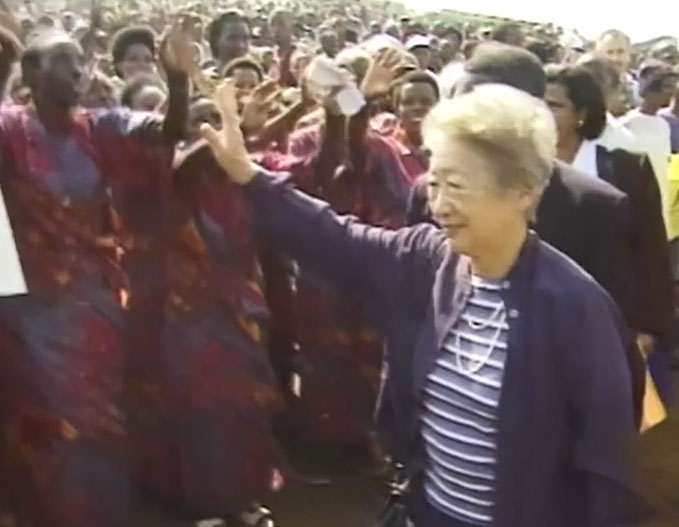
Ogata also served as High Commissioner during the Rwandan genocide of 1994. While some humanitarian organizations halted their activities in the region, concerned about supporting people who had been members of armed groups, the UNHCR continued its refugee protection program.
Twenty years later, Ogata spoke at a memorial ceremony in Tokyo for the genocide victims. "World peace is created by people's efforts. We have something to learn from the efforts of the people of Rwanda 20 years on."
How she is remembered
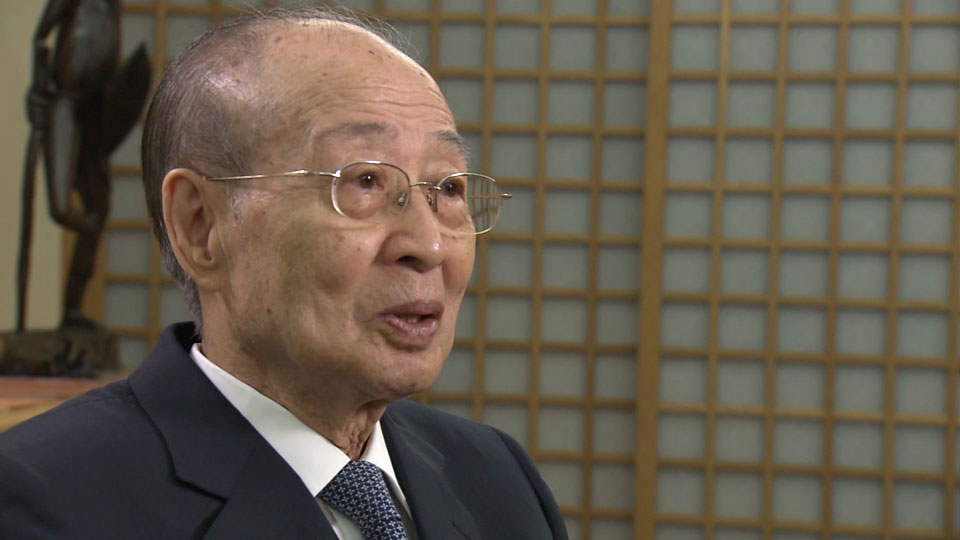
Senior Japanese diplomat and UN administrator, Yasushi Akashi, said Ogata was devoted to helping people ravaged by conflict.
"I think she raised the UNHCR to another level of achievement," he said. "She was always calm, and deeply aware of her responsibility to the United Nations...as well as to the people directly affected."
Akashi said Ogata broke new ground as the first woman in Japan to head a major UN agency. "I think she did many great things, even though she had no model to follow, so she was a pioneer in many fields."
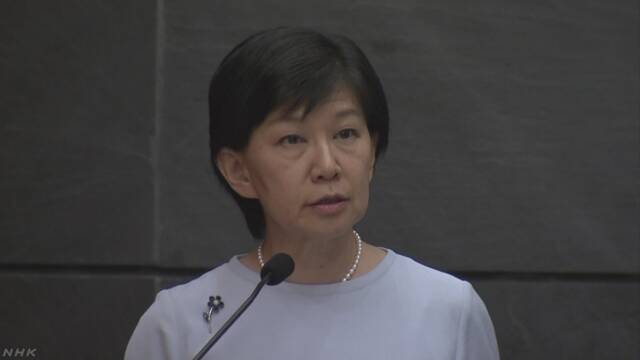
UN Under-Secretary-General of Disarmament Affairs, Izumi Nakamitsu, said Ogata never wavered in her belief that refugees, the most vulnerable people, were the first priority. "Those who learned from Ogata are now active in several positions at the UN," she said. "We have to continue to carry out her will."
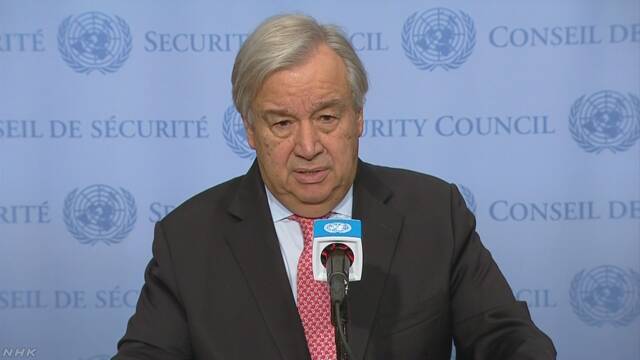
UN Secretary-General Antonio Guterres issued the following statement.
"Sadako Ogata set the standard for helping refugees: principled, compassionate, effective. She was fearless in her advocacy for people, humanitarian action and political solutions."
Guterres noted that Ogata was the first woman to serve as High Commissioner for Refugees. He said she was "a pioneer in highlighting not only the impact of violence on women but the imperative of women's involvement in solutions."
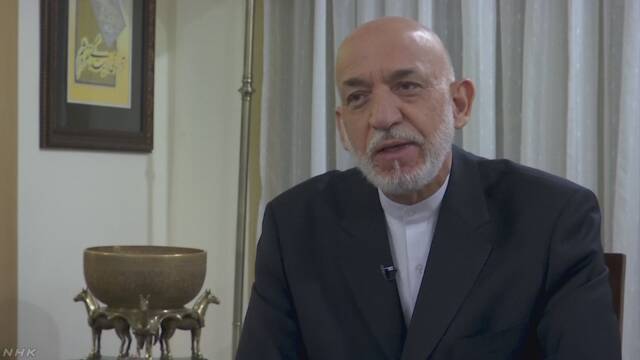
Former Afghan president Hamid Karzai offered his condolences to Ogata's family, friends and colleagues.
"As Japan's special reconstruction representative to Afghanistan, Madam Ogata worked with great dignity and grace in providing reconstruction assistance and scholarships," said Karzai on Twitter.
Kosovo's Ambassador to Japan, Leon Malazogu, also sent a message on Twitter. "Sad to learn that the world has been bereaved of Mme Sadako Ogata. Kosovo will always remember her as she stood by us during the most difficult times."
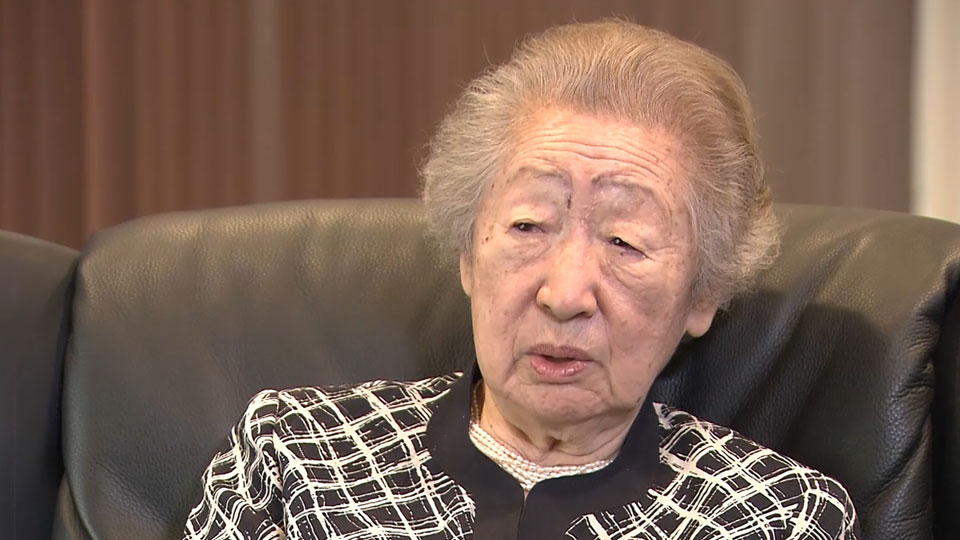
As people around the world mourn the loss of a great humanitarian, Ogata must also be remembered for her strong pursuit of world peace.
"Peaceful society can't develop on its own," she said. "It must be created by the continuous efforts of the people themselves."

